1
Work on an organic farm in Italy (it changed our lives)
In 2013, we put our lives on hold, shouldered our backpacks and set out with our two toddlers on a journey that ended up changing our lives.
Many journeys start with a desire to discover something new. Ours started with World Wide Opportunities on Organic Farms and a desire to understand the life of farmers and food in our ancestral homeland of Italy. With branches in 132 countries, Wwoof connects volunteers to organic farms and growers. In return for volunteer help, hosts offer food, accommodation and opportunities to learn about organic farming and lifestyles.
We wanted more than just cooking classes or other touristy things, and because Wwoofing offers the possibility of a low-cost lifestyle (we spent $3,700, excluding airfare, over six months), it allowed us to extend our time and truly immerse ourselves in another culture.
We experienced Italian farms and families from Tuscany to Molise, in the south, but the one that made the biggest impression on us was near Urbino, in the central region of Le Marche, run by a humble, passionate couple who took incredible care in their craft.
The main business of this beautiful farm – more than nine hectares (23 acres) of rolling pasture in the foothills of the northern Apennines – is outdoor breeding and raising of cinta senese pigs to produce artisanal prosciutto crudo. But it is also a true sustenance farm, with chickens, ducks, geese and cows for milk, eggs and meat. Their gardens were bursting with produce destined for their table and to stock their cantina with preserves, jams and sauces to last the year. Except for coffee and a few other items, everything came from their land, was foraged from the woods or bartered for with neighbours.
We helped with feeding the animals and doing odd jobs around the farm and in their butcher’s shop, learning as much about their practices and craft as we could. More than that, though, we were able to share their dinner table and hear about their passion for the simple life and their love for the land.
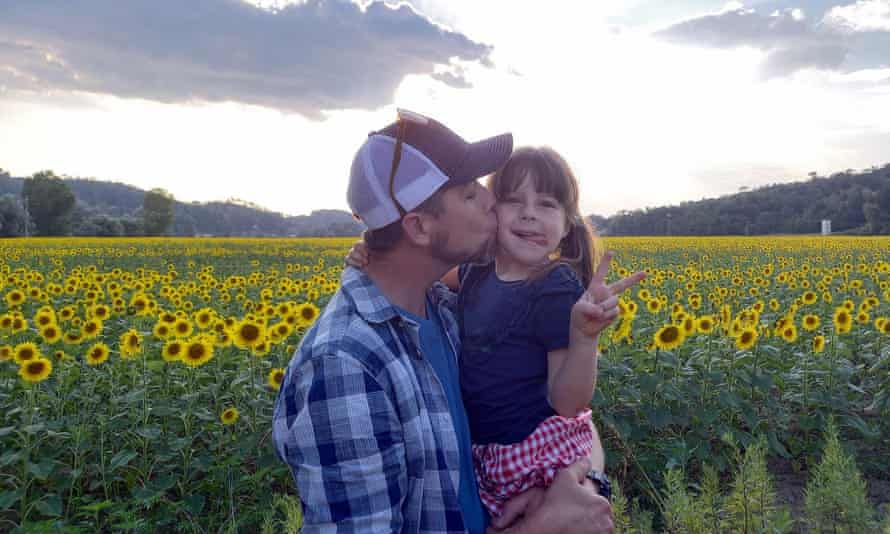
After our six-month Wwoofing experience we were hooked, and jumped headfirst into expanding our knowledge of food and simplifying our lifestyle. I went on to do a master’s at the Slow Food-affiliated University of Gastronomic Sciences in Pollenzo in Piedmont. We have since raised heritage chickens, ducks, and red waddle pigs; we stocked our pantry with our own produce and cured meats from the land. And three years ago we sold everything we owned in the US and moved to the picturesque Tuscan hilltop town of Montaione, which we’d fallen in love with while on our first Wwoof farm.
Going Wwoofing was one of the best decisions we ever made. All those years ago, while planning our dream backpacking trip, we never could have imagined the impact it would have on our lives. We built lasting friendships and returned changed people, with new aspirations. What started as an educational trip with our kids turned into a journey that helped us answer questions we hadn’t even thought to ask.
To find Wwoofing opportunities, join the organisation in the country where you want to work (for example, Wwoof UK will put you in contact with UK host farms). To get to know farming cultures of other countries, visit wwoof.net
Jason and Jill DiLoreti
2
Swap houses – and get much more than a free place to stay
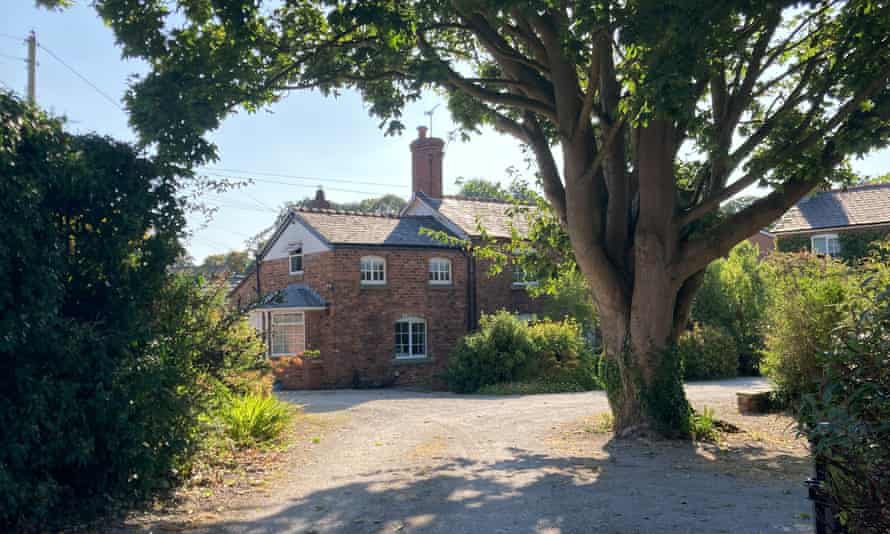
House-swapping is something I, like many, had considered, but never been brave enough to try. Until last year that is, when I realised my chance of finding a holiday cottage we could afford in the school holidays (let alone in Wales, where we actually wanted to go) were almost nonexistent. On a whim, I posted on Instagram asking if anyone would like to swap homes with us (myself and four children, aged five to 18) with a couple of snaps of my kitchen – wet washing on a dryer, Lego everywhere – and a shot of the garden, and crossed my fingers.
While mine may have been an unconventional way of going about it, companies offering house-swapping services are reporting a boom: Love Home Swap, for example, has seen an 82{e9f0aada585b9d73d0d08d3c277fd760092386ec23cac37d50f4b8cd792b062a} increase in new UK members over the past 12 months. I didn’t have to wait long for a reply to my Insta request. “I’m interested in swapping houses!” it read. There followed a chatty description from a woman called Maki in north Wales about her family home and her local area. Pictures of her, her husband and two young sons on beaches, picnicking at castles and biking along towpaths showed a life that didn’t look a million miles from mine.
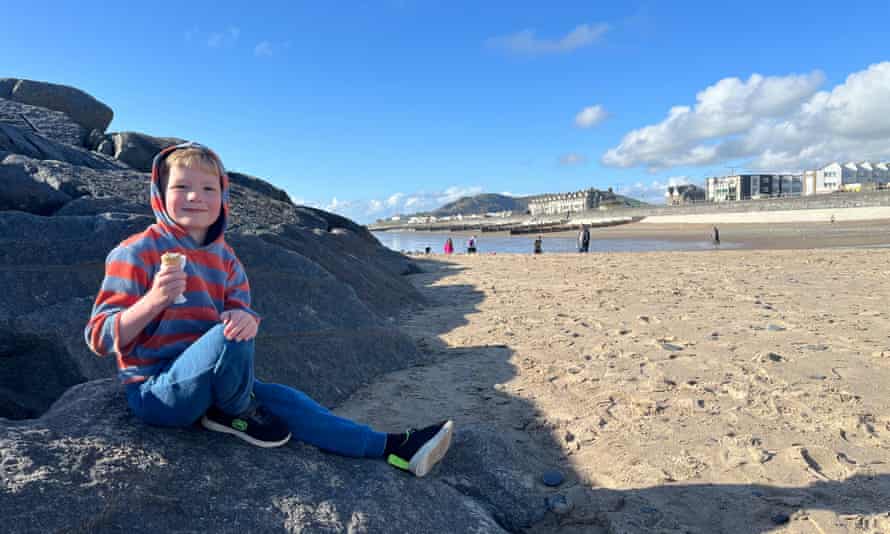
A month later, I was turning the key in her front door. My children ran in, soon discovered Maki’s sons’ Lego and shrieked with excitement when they found the trampoline. As I ran my eye across Maki’s bookshelves, I could tell she was a kindred spirit, so never had a moment’s anxiety about the security of my home.
There’s something fun, with an element of pot luck, about house-swapping. I loved the feeling that, for a week, I was stepping into Maki’s shoes: walking my kids down to the river where she played with her sons, eating in the pub she’d recommended. And when she messaged – as I sat in her back garden, watching my children playing with her children’s toys – about how much she loved our house, I felt genuinely glad that another family was enjoying the place we love.
Maki’s house is within striking distance of Chester, which meant we had the beaches of north Wales to discover but were also not too far from Snowdonia. The children enjoyed the sandy beaches of Colwyn Bay; I liked the faded glamour of Llandudno.
Of course, there’s a huge financial advantage to home swapping. Renting a spacious house like Maki’s for a week could easily have cost thousands. I have now signed up for several house-swap websites. There was something gratifying about knowing that our holiday house had cost us absolutely nothing. The children were delighted, too: it meant I could buy them ice-creams as well as milkshakes every time we went to the beach.
Guardian Home Exchange connects potential swappers around the world (£35 for six months). At Love Home Swap (from £96 a year) you can directly swap homes or use a points system to go somewhere else.
Clover Stroud
3
Have a Highland bothy to yourself … well, sometimes
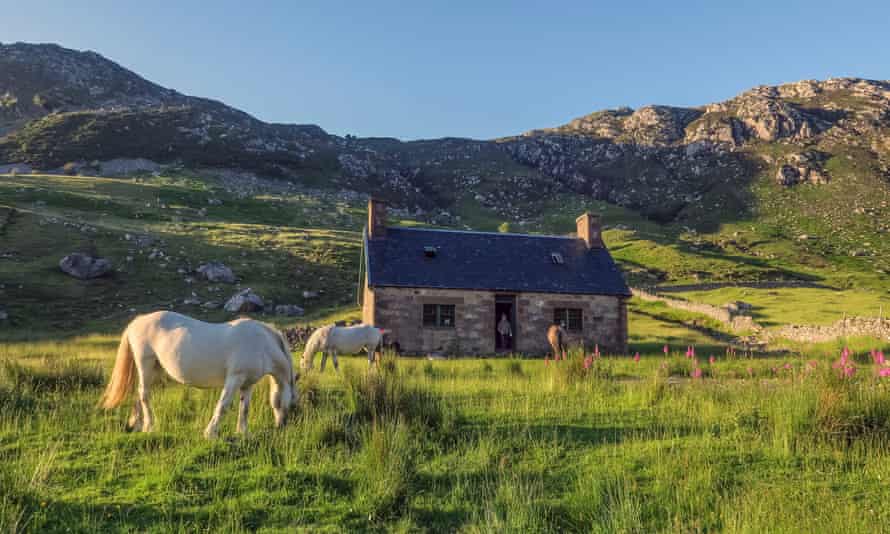
Standing at the door, I take a deep breath before knocking. This building in the Scottish Highlands looks like an old house, but isn’t a home. Getting here has taken all day, but what a day. I’ve edged a loch so huge it felt like an ocean, seen grey seals, herds of red deer and common terns – but not another soul.
My accommodation tonight is free – I’m staying in a bothy. There’s no charge at these remote mountain shelters best thought of as stone tents (you have to take camping gear – plus a tent in case it’s full). Found mostly in Scotland, they’re maintained by the Mountain Bothies Association (membership £25 a year).
Unlike the free mountain huts in Norway, Finland or Estonia, bothies weren’t built for hikers; they had former uses. The one I’m at was once a school. You can’t book, so have to just show up and hope. This can lead to serendipitous meetings, or the whole place to yourself. I rap at the wooden door and open it, not knowing who’ll be inside – but that’s part of the magic.
Phoebe Smith, author of The Book of the Bothy (Cicerone, £9.71)
4
Sail around the world as a deckhand

The adventure begins in a London pub. My partner and I look nervously for Dave Lowrie, described as “at the bar, tall” in a text. After spending weeks browsing listings on the sailing and crewing matchmaking service Crewseekers, we hope he is the one.
A couple of pints down, and it’s clear we’re a good fit – Dave and his wife Kath are looking for deckhands to help sail their Norwegian ketch, Lista Light, to the Caribbean on November’s trade winds. We want to get across the Atlantic as part of a no-fly round-the-world adventure. Crewseekers’ one-off £75 membership fee opened up hundreds of potential boats looking for different levels of experience on journeys of varying length. Conversation soon turns giddy with excitement as we take in the prospect of swapping the city for life on the ocean wave.
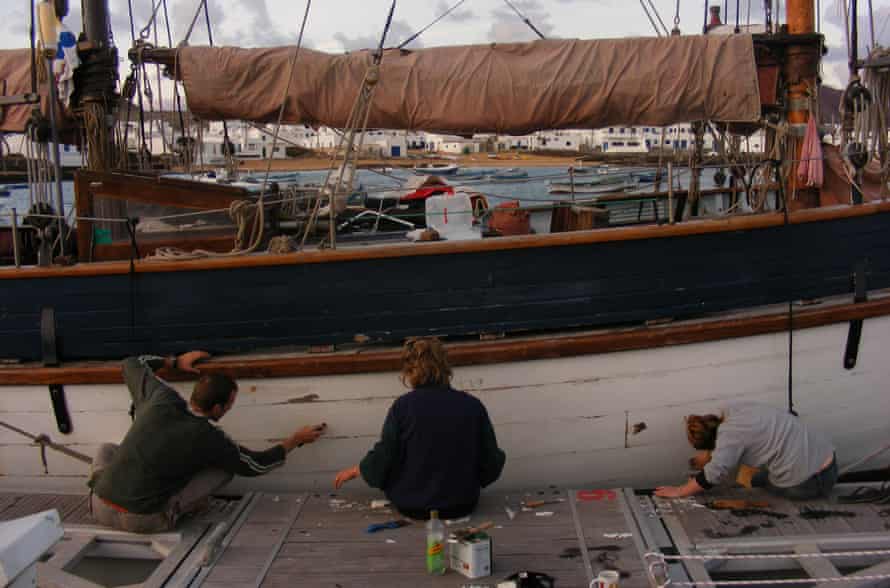
We visit Lista Light on the River Exe a few weeks later and fall in love with the ramshackle old girl with her seven magnificent sails. She is impractical – her ropes and steering are manual – but wonderfully romantic.
After demonstrating our basic knowledge (we’d recently completed a RYA day skipper course in Dartmouth), we discuss logistics, agreeing to chip into a food and fuel kitty.
The next time we see Lista Light is in Lisbon marina, when we jump on board for more than two months and 3,200 nautical miles of sailing. From Lisbon, we sail to Sagres, on the south-west tip of Portugal, and across to Morocco, where we spend three weeks in El Jadida, fixing up the boat, washing in the local hammam and loading up with spices from the market. We then head west to La Graciosa, a tiny car-free island off Lanzarote, passing a pod of pilot whales, and on to La Palma on Gran Canaria.
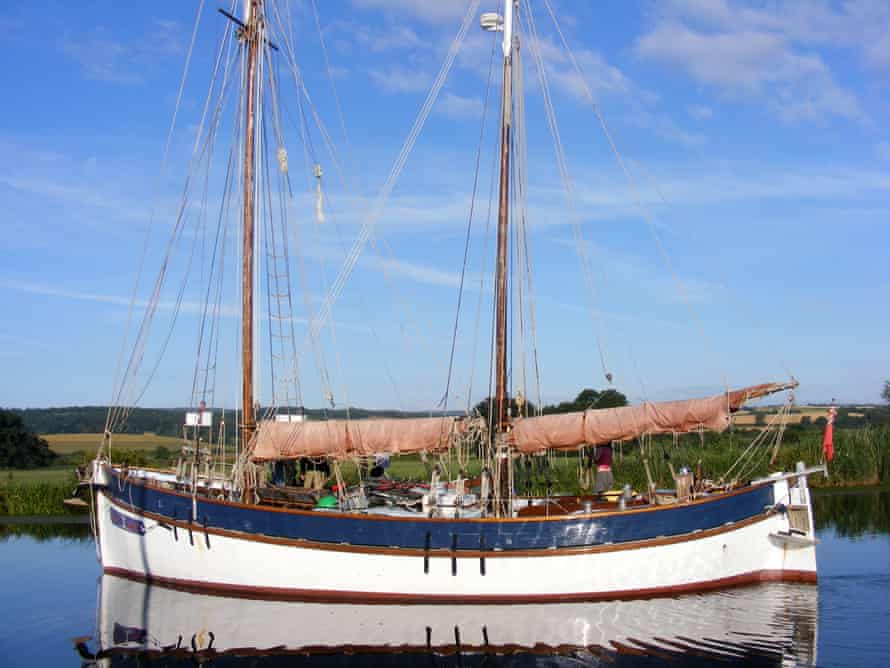
By the time we leave the safety of port to catch the trade winds across the Atlantic, we’re well into the rhythm of life on board, taking it in turns to cook and clean, and adopting a two- to four-hour watch system. Sunrise and moonrise take on whole new meanings: no one likes sitting alone at the helm in pitch black.
If adventure is what we hoped for, we get it in bucketloads. We’re becalmed 500 miles off the coast of west Africa for five days; flying fish dart on to the deck one night; a minke whale follows us for three days; and almost exactly halfway across the ocean, our mainmast snaps in two, leaving us having to sail the rest of the way at half the speed.
After 31 days at sea, we arrive on the Dutch Caribbean island of Sint Maarten. The joy of seeing humans and trees again is tempered by the horror of cruise ships and plastic-strewn ports. Several rums in, we relax back into life on land, marvelling and celebrating, already nostalgic for the simplicity of our seafaring days – proof that some of the greatest adventures out there can cost next to nothing.
Holly Tuppen
5
Volunteer at a conservation project in Orkney
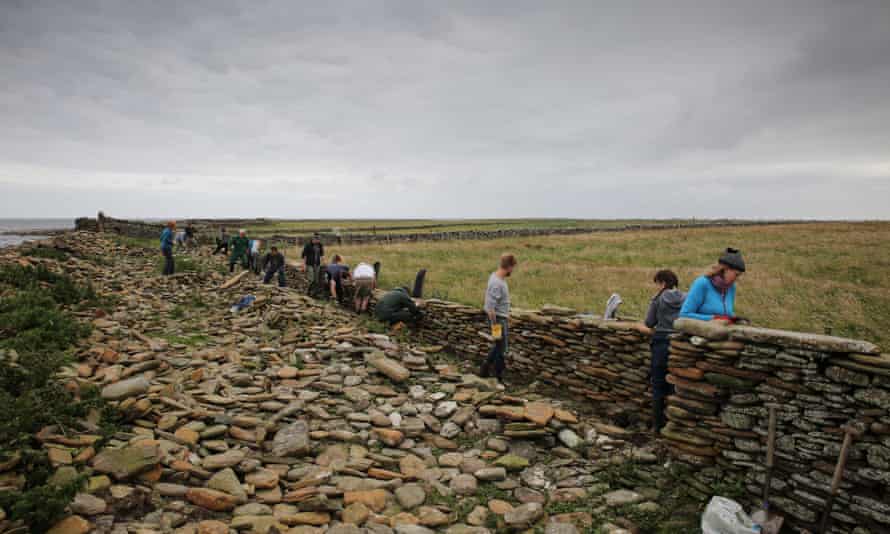
Finding the right rock is exacting. I need something telephone-directory shape, but nothing is apparent. I feel I’m being watched. When I turn round, five common seals are staring from the sea, framed by orange bladderwrack on the shore. Following lengthy mutual inspection I turn back, spot a likely stone and lift it into place.
The North Ronaldsay sheep festival is unusual – revolving, as it does, around sheep and drystone walling. And North Ronaldsay is itself distinctive; the northernmost island in Orkney, it’s home to the North Ronaldsay sheep, a rare, semi-feral beast notable for its small size, short tail and novel diet.
Much of the time the sheep eat seaweed, mostly kelp, on the island’s foreshore, and have adapted to it so well that eating grass can now poison them. So they are kept off the grass inland by a 12-mile sandstone wall – or dyke. Built around the island in the 19th century, it’s one of the world’s largest drystone walls.
Storm damage necessitates continuous repairs, but with a population that’s dwindled to around 50, many of them elderly, the locals need help – hence the festival. First held in 2016, volunteers come from all over the world – this year there are 49 of us – to mend the dyke, sightsee, play football and have fun. It’s a great way to do something useful and get to know this beautiful part of the world and its culture – and it’s free.
Arthur Hunt, an electrician from London, guides the dyke menders – and we soon learn the lingo. At the bottom of the dyke there are “grounders” – very large stones which often require two or more people to lift; big stones go up the outsides of the dyke, with small ones, or “heartings”, in the middle and “through-stones” to tie the front and back of the dyke together.
The dyke’s seaward side has to be especially smooth and perpendicular to stop sheep running up it. Arthur dismantles and rebuilds my first attempt with the dexterity of a waiter stacking plates, but assures me I will quickly improve. He’s right: next time round I don’t need rescuing.
After the day’s work I bathe in Nouster Bay, a wide smile of pale sand, with chilly water that segues from aquamarine shallows into indigo deeps. I am alone – except for five grey seals, popping up and down as I swim.
Later I return to North Ronaldsay Bird Observatory, the guesthouse and hostel where many of the volunteers are staying. This is where I first spy a flock of North Ronaldsay sheep, a moving patchwork quilt in browns, greys, blacks and whites.
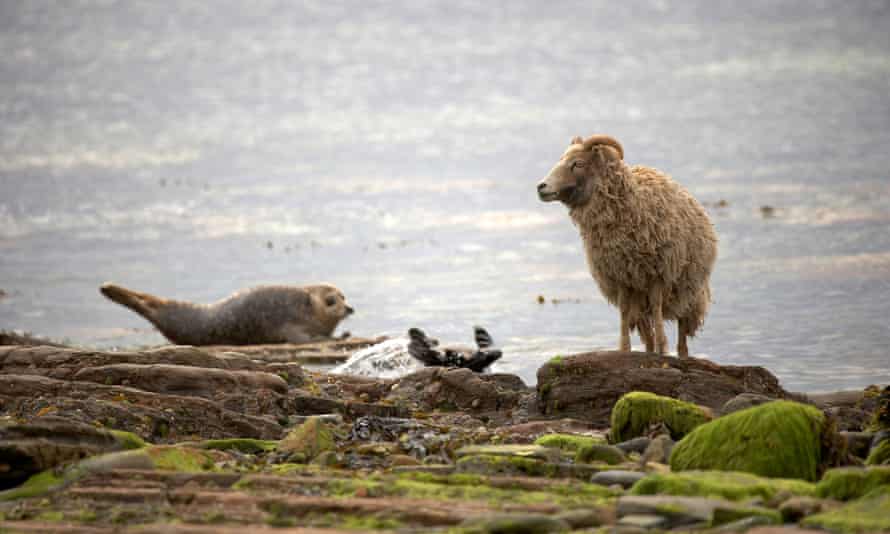
Between stints of dyke repair I explore more. The hedgerows are full of wildflowers – tansy, dog rose and tufted vetch – and fields are broken by lochs. Overhead I see arctic terns and bonxies (the local name for great skuas).
Some volunteers are local. Eileen Turfus was born on nearby Sanday island. “My forebears built the dyke,” she says, “I might be handling the same stones as them.” Eileen plays in the residents v visitors festival football match. Two men mark her, but she scores easily. Other highlights include guided tours of the island’s lighthouse and wool mill. And, of course, there are several evenings of music, and a dance.
Among the fiddle players is Heather Woodbridge, festival coordinator. In between regaling us with Flett Fae Flotta and the Stronsay waltz, she’s keen to emphasise that the festival is much more than heaving stones around, it’s all about community. “You see people really sad to leave and how they’ve been touched by their experience,” she says. “And you see all the good it’s done for the island.”
The trip was provided by Visit Orkney. The North Ronaldsay sheep festival runs from 1-12 August and is free; volunteers can sign up for any number of days. Accommodation ranges from camping (£5 a night) to half-board at the Bird Observatory (£60)
More free volunteering stays
RSPB
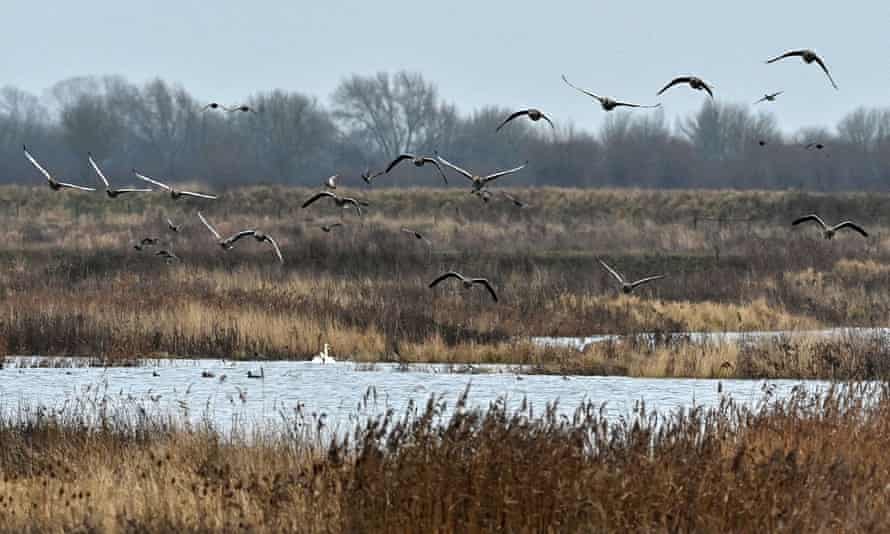
There are a range of options for helping to save nature, from day visitors to those with weeks to spare.
rspb.org.uk
HelpX
This online platform lists farms, lodges, hostels and even sailing boats offering volunteers accommodation and food. Helpers work four hours a day on average. Basic membership free.
helpx.net
Help Stay
This contact platform for hosts and helpers offers work on anything from permaculture projects in Morocco and French B&Bs to schools in Tanzania. From €29.99 a year.
helpstay.com
Workaway
From connecting travellers with an artist in Chiang Mai to an Earthship in Turkey, the choice of volunteering and working holidays in 170 countries is huge. It’s £37 to register.
workaway.info
Waterway Recovery
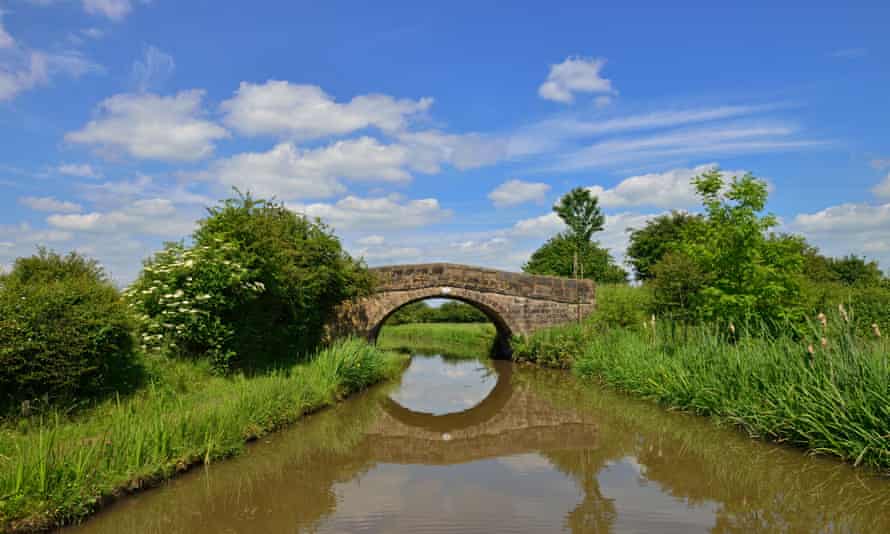
This group runs week-long working holidays restoring canals. Adult camps book up fast, but there are still places on a Buckinghamshire weekend family camp suitable for 6-14-year-olds.
waterways.org.uk
Planet Patrol
This charity cleans up inland waterways in the UK. Volunteers get a free paddleboarding, kayaking or canoeing session, and help clear litter from rivers, lakes and canals.
planetpatrol.co
Conservation Volunteers
Opportunities include a dragonfly survey in a London park and sowing a wildflower meadow in Glasgow.
tcv.org.uk
More ways to travel for free
Couchsurfing
A social network with 11 million members around the world, Couchsurfing connects travellers with local hosts offering a place to stay (a spare room, sofa or air mattress). It’s simple to sign up to, a great way of meeting people and getting an insight into a new place and, best of all, cost-free. There are measures to ensure security, too.
Other options include BeWelcome, a free non-profit connecting travellers and locals offering places to stay.
Housesitting
A good way to stay for free while the owners are away. Sites including Trusted Housesitters and House Sitters UK offer a huge range of options. In return for accommodation, sitters look after the house, and often the pets, too.
Free camping and caravanning
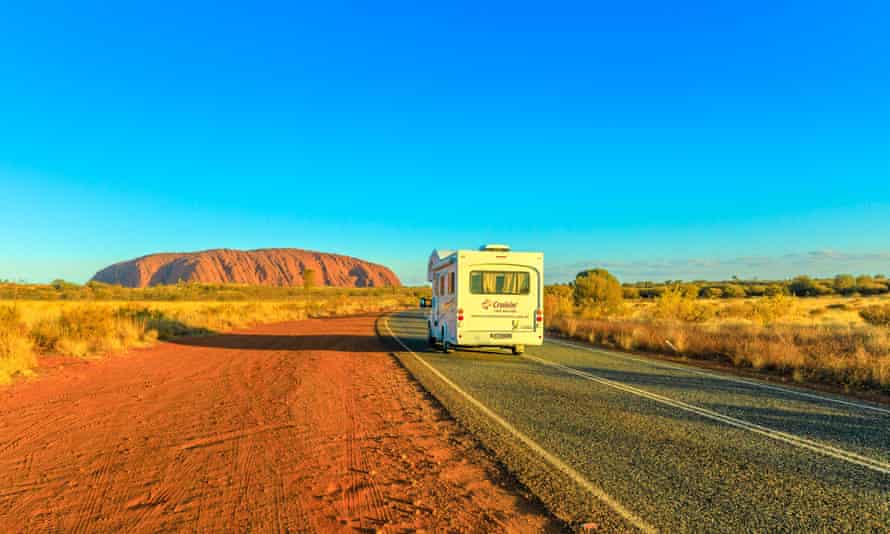
Campervanners and caravan owners looking for free overnight spots can sign up for apps such as Park4night, which lists places to stop beyond campsites, from supermarket or pub car parks to farmers’ fields. The basic app is free; there’s a €9.99 (£8.50) a year fee for the premium service. In the UK, wild camping is legal only in Scotland and on Dartmoor, though sites such as Campspace include cheap places to stay (from £7 a night), including private gardens. In Belgium, Welcome to my Garden is a not-for-profit network offering free camping in private gardens for hikers and cyclists.
Green Kayak
This charity will lend visitors a free kayak for two hours, provided they bring back a bucket of plastic waste from Copenhagen’s waters. Volunteers have collected 24,319kg of rubbish since 2017.
greenkayak.org
Vroom Vroom Vroom
Cars, campervans or motorhomes can be had for free using this relocation service across Australia, New Zealand, Europe and North America. Most deals offer a set mileage and time; extras may include fuel and insurance. vroomvroomvroom .com.au
Free public transport
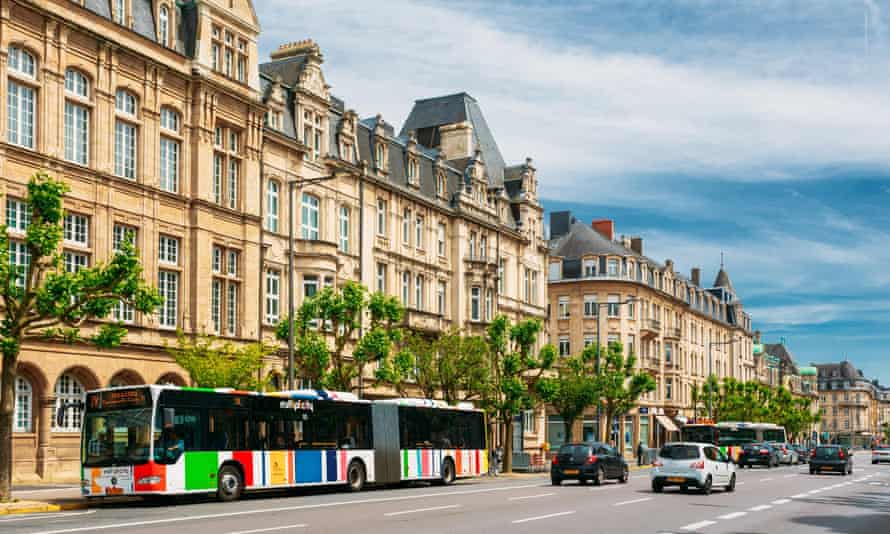
In 2020, Luxembourg became the first country to make all public transport, including buses, trains and trams, free to residents and visitors in a bid to lower emissions. A journey planner is available on its easy-to-use app.
mobiliteit.lu
Bla Bla Car
Cheap but not entirely free, this carpool app connects drivers with travellers heading the same way.
blablacar.co.uk
Free Herefordshire
Weekend bus travel within the county is free until at least autumn, thanks to the Covid-19 Recovery Fund. Hop on and off any bus, any time, fare-free.
herefordshire.gov.uk